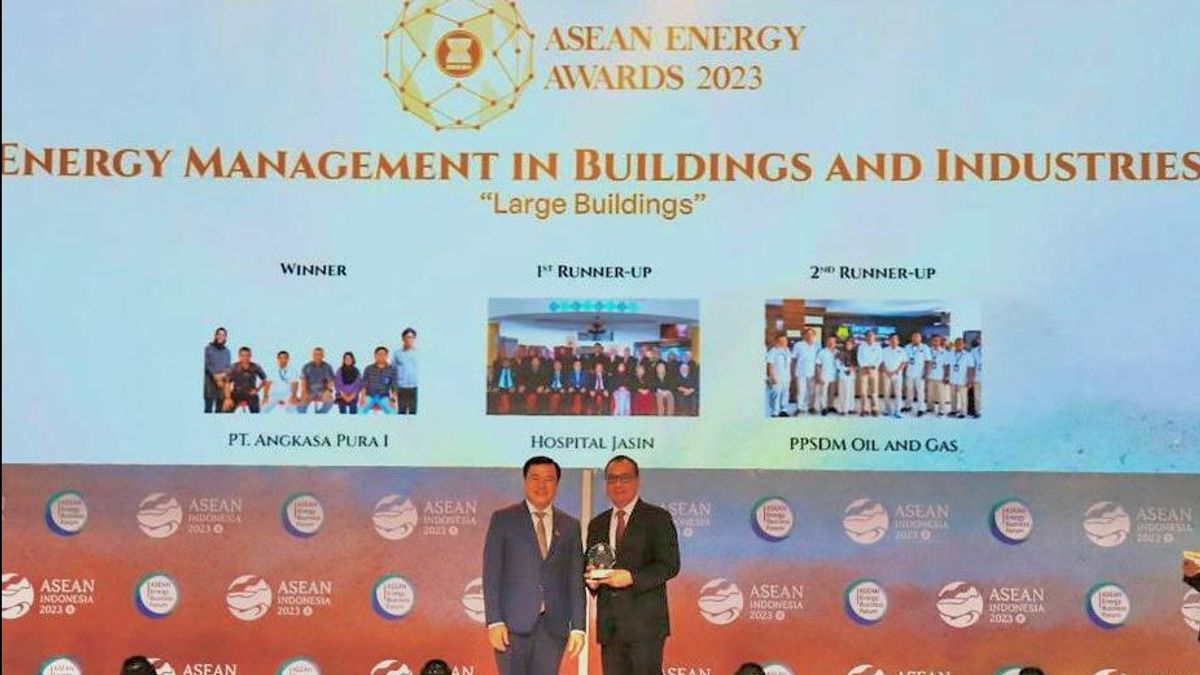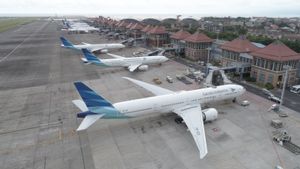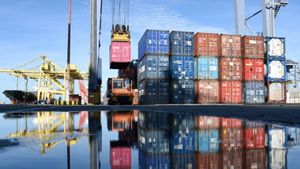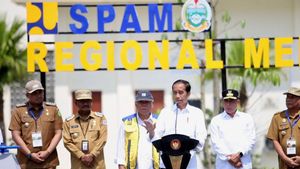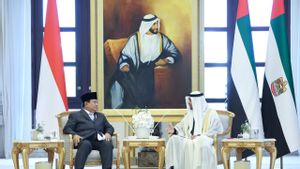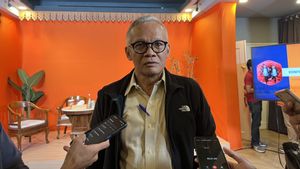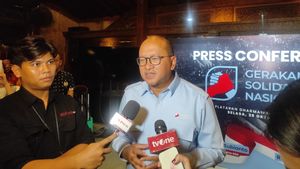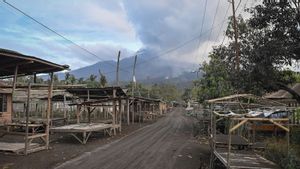JAKARTA - Bali's I Gusti Ngurah Rai Airport managed by Angkasa Pura I (AP1) was named the winner of the Energy Management in Buildings and Industries-Buildings-Large Buildings category at the ASEAN Energy Awards 2023 organized by the ASEAN Center for Energy (ACE).
The ASEAN Energy Award is the highest award given to business entities in the field of energy efficiency and renewable energy development in the Southeast Asia region.
The award was handed over directly by the Deputy Minister of Industry and Trade of Vietnam Nguyen Sinh Nhat Tan to the President Director of PT Angkasa Pura I Faik Fahmi in Nusa Dua, Bali, on Friday night, August 25.
Faik Fahmi enthusiastically and grateful for this achievement.
"The achievements achieved by Bali's I Gusti Ngurah Rai Airport further emphasize that AP1 as an airport management company is fully committed to environmental conservation efforts through energy conservation," said Faik in a written statement, Saturday, August 26.
Faik added that this award also complements the achievements previously achieved by Bali's I Gusti Ngurah Rai Airport in the field of energy management, namely the Subroto Energy Efficiency Award (PSBE) from the Ministry of Energy and Mineral Resources which was achieved in 2022, and the Energy Management Insight Award organized by The Clean Energy Ministerial (CEM) in June 2023.
Bali's I Gusti Ngurah Rai Airport is a representative of Indonesia in the category of the ASEAN Energy Efficiency and Conservation Best Practices Awards after previously winning Rank 1 at the 2022 Subroto Award for Energy Efficiency for the category "Egy Management in Industry and Buildings. Big Building Sub-Categories".
Bali's I Gusti Ngurah Rai Airport is the first airport under AP1 management as well as a pioneer airport in the Southeast Asian region that won the ISO 50001:2018 Energy Management System certificate, after previously being appointed by the Ministry of Energy and Mineral Resources as one of the pilot infrastructure projects for implementing ISO 50001: 2018 Energy Management Systems.
SEE ALSO:
The program was initiated by the Directorate General of New Renewable Energy and Energy Conservation (Ditjen EBTKE) of the Ministry of Energy and Mineral Resources, as well as in collaboration with the United Nations Development Program (UNDP).
In the implementation of the ISO 50001:2018 Energy Management System, Bali's I Gusti Ngurah Rai Airport applies a number of steps and policies that are oriented towards environmental sustainability and energy conservation aspects, as well as the use of energy-friendly technology, including photoelectric sensors on escalators and travelators at terminals, the application of the Building Automatic System (BAS) to control electronic devices at passenger terminals, use of clean water distribution monitoring systems, use of LED lights at passenger terminals and air side areas, as well as use of solar-powered street lights in pedestrian areas at airports.
In addition, to support the use of new and renewable energy (EBT), AP1 together with its subsidiary, namely Angkasa Pura Properti (APP) built a Solar Power Plant (PLTS) in the form of a photovoltage power plant with a capacity of 155 kWp. The use of this PLTS contributes to the decrease in carbon dioxide gas (CO2) by 119 tons.
For various efforts made by AP1 in the energy management system, Bali's I Gusti Ngurah Rai Airport managed to save energy of 26,592 MWh or equivalent to saving electricity costs of IDR 27.8 billion in the 2020 to 2022 range.
This energy savings has increased by 44 percent in the span of the last two years. In addition to successfully carrying out energy savings, Bali's I Gusti Ngurah Rai Airport also recorded a decrease in greenhouse gas (GHG) emissions or a gas greenhouse of 21,008 metric tons of carbon dioxide.
"Various awards related to the energy management that have been achieved have become a trigger for us to continue to maintain the company's commitment to realizing the company's mission, which is to make a positive contribution to the environment," he concluded.
The English, Chinese, Japanese, Arabic, and French versions are automatically generated by the AI. So there may still be inaccuracies in translating, please always see Indonesian as our main language. (system supported by DigitalSiber.id)
